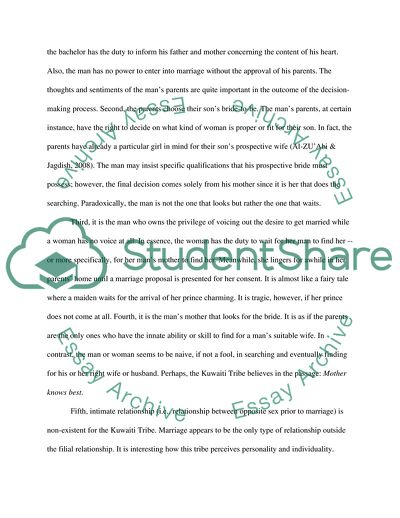Cite this document
(Impressions to Kuwaiti Tribes, Andaloor Villages and Judaisms Case Study, n.d.)
Impressions to Kuwaiti Tribes, Andaloor Villages and Judaisms Case Study. Retrieved from https://studentshare.org/family-consumer-science/1740552-cultural-weddings
Impressions to Kuwaiti Tribes, Andaloor Villages and Judaisms Case Study. Retrieved from https://studentshare.org/family-consumer-science/1740552-cultural-weddings
(Impressions to Kuwaiti Tribes, Andaloor Villages and Judaisms Case Study)
Impressions to Kuwaiti Tribes, Andaloor Villages and Judaisms Case Study. https://studentshare.org/family-consumer-science/1740552-cultural-weddings.
Impressions to Kuwaiti Tribes, Andaloor Villages and Judaisms Case Study. https://studentshare.org/family-consumer-science/1740552-cultural-weddings.
“Impressions to Kuwaiti Tribes, Andaloor Villages and Judaisms Case Study”. https://studentshare.org/family-consumer-science/1740552-cultural-weddings.


